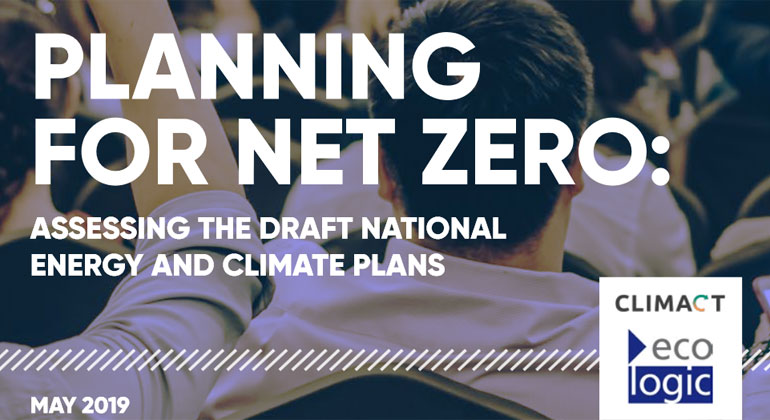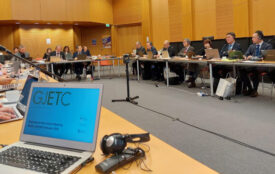EU countries still have a chance to improve their climate plans
Net zero emissions economies will not come about by chance: dedicated focus and planning, with a clear eye to the end goal, will be needed.
National Energy and Climate Plans (NECPs) represent an opportunity for EU Member States to chart their next steps on the road to a climate-secure future, and to reap the economic and social benefits which come with that. Clear and robust NECPs can serve as advertisement to large and small investors and engage stakeholders in implementation, as well exposing where additional efforts will be needed. However, the draft plans presented by governments at the start of 2019 are in acute need of improvement.
These are the findings of a new report conducted by Ecologic Institute and Climact and commissioned by the European Climate Foundation. It is part of the Net-Zero 2050 series, an initiative of the ECF with contributions from a consortium of experts and organisations.
This report assesses all the Member States’ draft integrated National Climate and Energy Plans submitted to the European Commission and scores them according to
- The level of ambition,
- The level of detail of the policies and measures described,
- The quality and inclusiveness of the drafting process.
According to the ranking, Spain and France lead the way with 52% and 47%, respectively, followed by Greece (44%) and Sweden (43%). The Slovenian climate plan comes in last with a score of 3%, with Slovakia (12%) and Germany (12%) slightly ahead. The average score for the EU bloc is 29%.
This assessment finds that, while the draft national climate plans indicate countries are taking steps towards climate action by 2030, they do not yet live up to the ambitions set by EU legislators and the Paris Agreement. Recurrent problems include limited plans for phase-out of coal and fossil fuel subsidies, few indications on the needed investments, too much use of unsustainable biomass, inadequate public consultation, and lack of explicit effort to back-cast plans from the 2050 goal.
The report identifies several good practices across the draft plans that national and EU policy-makers can take inspiration from and replicate.








